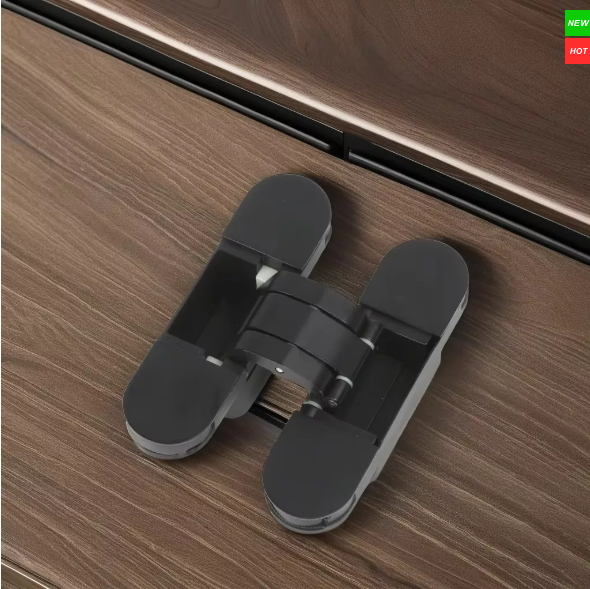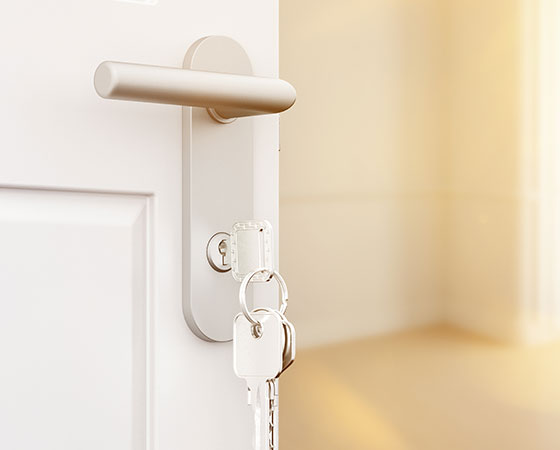Views: 0 Author: Site Editor Publish Time: 2025-08-19 Origin: Site








Choosing the right door hinge is crucial for both the function and look of your door. Did you know that a quality hinge can improve the door's durability and smoothness?In this post, you’ll learn how to select the best hinge based on your door's weight, material, and style. We’ll discuss practical tips for maximizing the lifespan and efficiency of your door hinges.

Door hinges are essential for ensuring your door operates smoothly. They support the door’s weight, allowing it to open and close without difficulty. Without the right hinge, doors may sag, become misaligned, or wear out faster.
The performance of your door is directly tied to the hinge type. High-quality hinges allow for smoother movement, while poorly chosen ones can make your door hard to use or even unsafe. They also impact security; a strong hinge keeps your door securely closed. Aesthetic-wise, hinges can complement the overall look of the door, enhancing its visual appeal.
High-quality hinges contribute to a smoother operation and longer lifespan for your doors. Whether you're installing a heavy iron door or a lighter interior door, selecting the right hinge type ensures durability and optimal function.
Target Keyword Variation: "Choosing the right door hinges for durability"
What materials are commonly used for door hinges?
Steel works well indoors, while stainless steel and bronze are better for outdoor doors due to their rust resistance.
Steel, brass, stainless steel, and bronze are popular options.
Which material is best for indoor vs. outdoor use?
Why is material selection important?
Consider your door's weight and whether it’s exposed to the elements. Heavier doors need stronger materials.
Target Keyword Variation: "Best door hinge materials for long-lasting performance"
How do you measure your door for the correct hinge size?
Measure the height, weight, thickness, and backset of the door to ensure the hinges fit perfectly.
Why is getting the measurements right critical for door hinge performance?
Incorrect measurements can cause sagging, wear, and difficulty opening the door.
Target Keyword Variation: "Correct measurements for door hinge selection"
What are the different types of door hinges?
Common types include Butt Hinges, Continuous Hinges, Strap Hinges, Pivot Hinges, Ball Bearing Hinges, and Spring Hinges.
Which type of hinge is suitable for various door designs?
Butt Hinges are common for standard doors, while Continuous Hinges provide extra strength for heavy doors.
Target Keyword Variation: "Choosing the best type of door hinge for your needs"
Where should door hinges be placed for optimal door function?
Typically, hinges are placed about 7 inches from the top and bottom of the door.
How many hinges are necessary for different door sizes?
Smaller doors may need two hinges, while heavier or larger doors require three or more.
Target Keyword Variation: "Proper hinge placement for door function"
How do you choose a hinge finish that matches your door style?
Pick finishes such as polished or matte that complement your door’s design.
How does the finish affect the hinge's performance and lifespan?
A good finish protects the hinge from corrosion and wear, especially on exterior doors.
Target Keyword Variation: "Aesthetic and functional finishes for door hinges"
Why is it important to choose weather-resistant hinges for outdoor doors?
Outdoor hinges are exposed to rain and humidity, so rust-resistant materials are essential.
Which materials and finishes offer the best weather resistance?
Stainless steel and bronze, along with powder-coated finishes, provide excellent weather resistance.
Target Keyword Variation: "Weather-resistant door hinges for outdoor durability"
How can regular maintenance extend the life of your door hinges?
Regular cleaning, tightening screws, and lubricating the hinges prevent wear and friction.
How often should you lubricate and maintain your hinges?
Lubricate every 6-12 months, or more often for doors with heavy use or exposure to weather.
Target Keyword Variation: "Maintaining door hinges for optimal performance"

Choosing a hinge without considering the door’s weight or design.
Selecting hinges without factoring in the door's weight can lead to sagging or malfunctioning over time. Heavy doors require stronger hinges, such as ball-bearing or continuous hinges. Make sure the hinge type fits the design and purpose of your door.
Ignoring material suitability.
Not all materials are created equal. For example, brass may look great but isn't as durable as steel for heavy-duty doors or exterior use.
Incorrect measurements.
If you don’t measure your door properly, it could lead to issues like the hinges not fitting correctly or the door not swinging smoothly. Always measure door thickness and backset accurately.
Poor alignment.
Misalignment of hinges can result in the door becoming uneven, making it difficult to open and close. It's essential to check that both vertical and horizontal alignment are perfect.
Improper pre-drilling.
Skipping or misplacing pilot holes can lead to cracks in the door or frame. Always pre-drill to the right depth and size to avoid damaging your materials.
Target Keyword Variation: "Avoiding common door hinge selection mistakes"
Fixing issues caused by poor lubrication.
If your door squeaks, the most common issue is a lack of lubrication. Apply some grease or oil to the hinge pins. Regular lubrication keeps the hinges moving smoothly and prevents friction, which causes squeaking.
Addressing misalignment.
If the door doesn’t swing smoothly, check the alignment of the hinges. Misaligned hinges can cause uneven pressure on the door, making it hard to open or close. Simply realign the hinges by loosening the screws and repositioning them.
Checking for the wrong hinge size.
If the hinge is too small or not strong enough, it might not support the door properly, leading to difficulty in movement. Ensure you’ve selected the right hinge size for your door's weight and design.
Checking for loose hinges.
If the door feels wobbly or doesn’t close securely, it could be due to loose hinges. Tighten the screws with a screwdriver. If the screws won’t hold, you may need to replace them with longer or thicker ones.
Signs of wear and tear.
Over time, hinges can wear down, especially on heavy doors. Look for signs of rust, cracks, or bent pins. If the hinge is damaged, replacing it will ensure your door operates smoothly and securely.
Target Keyword Variation: "Troubleshooting door hinge problems"
Choosing the right door hinge is essential for both functionality and appearance. Consider material, hinge type, measurements, and finish. Regular maintenance and correct installation can extend the hinge's life.
A: Steel, stainless steel, and bronze are commonly used. Steel is ideal for heavy doors, stainless steel is rust-resistant, and bronze works well for outdoor use due to its corrosion resistance.
A: Replace hinges if the door sags, swings poorly, is rusty, or if lubrication doesn’t stop the squeaking. Damaged hinges need replacement to ensure smooth door operation.
A: DIY installation is possible with the right tools. For heavy or complex doors, hiring a professional ensures proper installation without damage.
A: Lubricate hinges every 6-12 months or more frequently for exterior doors. Regular lubrication prevents wear and keeps hinges moving smoothly.
A: Continuous (piano) hinges are best for heavy doors as they provide uniform support along the door’s length, ensuring durability and stability.